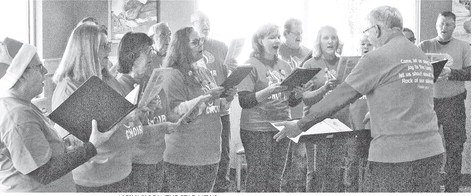Privatization of the Postal Service is not viable for rural America
The U.S. Postal Service should focus on delivering the mail, not delivering a profit.
Privatization of the postal service has been a dream for some who see the opportunity for profit, but it would be a nightmare for rural Americans who would see service cuts, additional delays and increasing costs. These would disproportionally impact rural residents simply due to the economics of having fewer potential customers over a wider area.
Private industry can be a wonderful thing.
In a business setting, the drive to be profitable can bring about innovation, out of the box thinking and the adoption of new efficiencies. When these are aligned with core values and the mission of the organization, the profit-driven model of business and industry can literally move mountains.
In a recent interview president-elect Donald Trump broached the idea of revisiting privatization of the postal service as a potential goal of his upcoming term. This is not a new idea and Trump had pushed for it in his first term of office. At the time, pushback from Congress and postal employee unions led to Trump backing off from a privatization plan in his first term.
Trump comments about renewed interest in postal service privatization comes at the same time that Postal Service leadership is under increased bipartisan scrutiny for spiraling increases in rates and ever-diminishing service standards.
Georgia Rep. Rich McCormick, a Republican, lambasted Postmaster General Louis DeJoy in a recent congressional hearing over mail delivery leading to DeJoy covering his ears during the hearing.
The Postal Service, like highways and sewage treatment plants is at its core a vital government service that delivers an essential function. In the case of the Postal Service the job is to deliver the mail accurately and in a timely manner.
Fees, in the form of postage paid by businesses and individuals, helps cover the cost of fulfilling this service. Much like the fees paid by sewer customers helps keep the local wastewater treatment plant remaining functional or the gas taxes charged to motorists helps fund highway improvements.
The major difference between these government services is that DeJoy and other postal leadership have lost sight, if they ever had it, of the service that is at the core of the Postal Service. If DeJoy’s version of operational leadership and strategy were applied to highways, we would see interstates being turned into gravel roads. The expectation of getting from Wausau to Eau Claire could go from a few hours to a few days and at the same time increasing fees would force businesses who rely on that service to pass costs onto consumers.
If the US postal service is privatized it will funnel off large city metro areas that can make money and drop rural areas that cover more land miles than people. This is most of the US population not living on either population dense coast. The Midwest could lose any mail or package service if this becomes reality.
Rep. Tom Tiffany and other Wisconsin congressional leaders must fight to ensure that the Postal Service continues to be a service to the American people.



